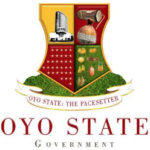
What does the term “professor emeritus” really mean? Is it acceptable to address a married woman as “Princess Mrs.” or “Mrs. (Dr.)? Is it OK to say “my names are” when introducing oneself? Find answers to these and other questions below:
Question:
I want explanation on the term “Emeritus Professor.” Does it mean a “Retired Professor” or “an Outstanding Professor”?
Answer:
It means both. It means a retired professor who retains some of the privileges of a full-time professor because of the outstanding work he did while in active service. “Emeritus” is Latin for “out of merit,” and can be used either before or after the title it modifies, such as “professor,” as in, “emeritus professor” or “professor emeritus.” Its feminine form, which some US universities insist upon but which rarely used elsewhere, is “emerita.” So don’t call (an American) woman an “emeritus professor”; she should properly be addressed as “Emerita Professor” or “Professor Emerita.”
To be appointed to emeritus/emerita status, a professor must demonstrate a track record of outstanding accomplishments in research, teaching, and service during full-time employment. Typically, upon retirement, such a professor will be formally recommended for the honor by the department in which he or she served. The recommendation will be reviewed and approved by the dean of the professor’s college, the provost (or “registrar” in Nigerian and British English) of the university, by the university president (or “vice chancellor” in Nigerian and British English), and by the board of regents (or university “governing council” in Nigerian and British English).
Emeritus/emerita status entitles the honorees to supervise master’s theses and doctoral dissertations or be members of theses and dissertation committees while in retirement; attend departmental meetings, although they can’t vote; use university facilities, such as office space, libraries, mail service, etc.; be listed on the directory of university’s faculty; be called upon by the university to offer assistance in their areas of expertise; and so on.
But the title doesn’t entitle honorees to any additional financial benefits. Emeritus/Emerita professors don’t earn any extra income outside of their retirement benefits. The honor is also often temporarily withdrawn if/when the honorees choose to return to work full-time in a university.
Note that emeritus/emerita status isn’t given only to professors (or “full professors” in American English); outstanding retired associate professors (or “readers” in Nigerian and British English) can also be conferred with the emeritus/emerita title. So can retired departmental chairs (or “heads of department” in Nigerian and British English) and deans of colleges (or “faculties” in Nigerian and British English). If you read about people being referred to as “emeritus/emerita chair” or “emeritus/emerita dean” know that such people retired as chairs and deans and were nominated for emeritus/emerita position because of their outstanding service.
The “emeritus/emerita” title is also used outside academia for retired people who were outstanding. Designations such as “Bishop emeritus,” “Archbishop emeritus,” etc. are common in religious orders.
In business, it is also traditional to honor (pioneer) chairmen, managing directors, directors-general, etc. who made noteworthy accomplishments in growing their companies as “chairman emeritus/emerita,” “managing director emeritus/emerita,” “director-general emeritus/emerita,” etc.
Question:
I am the editor of a newspaper in Lagos and need you to intervene in a dispute I have with my editorial board members. There is a well-respected woman who is also a princess in Benin. In our editorial we had cause to mention her name. I identified her with both Mrs and Princess. But I was told that this was wrong; that we should simply use her marital title and leave out the “Princess.” Is there any grammatical rule that makes combining two titles wrong?
Answer:
I will first give you a practical answer before telling you what the convention says: Please by all means show sensitivity to Nigerian cultural conventions and address her as “Princess (Mrs.” What is right and proper in Nigeria is infinitely more important than what is conventional in the West. People are sensitive about their titles in Nigeria. The Guardian in Lagos learned this the hard way in the 1980s. The paper had an editorial policy that said everybody should be addressed as simply “Mr.” or “Mrs.”
The high spenders in the Nigerian society didn’t like it and protested by refusing to place ads in the paper. It didn’t take long before the paper reversed its “Simply Mr” policy.
I actually answered your question in an October 15, 2010 article titled “The Grammar of Titles and Naming in International English.” <http://www.farooqkperogi.com/2010/10/grammar-of-titles-and-naming-in.html> In it, I wrote: “And in modern British and American English, it is grammatically wrong to use ‘Miss’ or ‘Mrs.’ along with other titles, so that a woman doctor can’t be called ‘Dr. (Mrs.) Gloria Fulani.’ Choose only one title. Of course, in a society like Nigeria where women rightly have a need to flaunt both their professional achievement and their marital status, not to talk of our obsession with titles, this rule will never be obeyed.”
Question:
We had an argument here about the correctness of the expression “my names are…” Someone said it’s wrong, but I think it’s right because unless you are Chinweizu, we all have more than one name. But you’re the authority on English usage in Nigeria. What do you say?
Answer:
I have answered this questions several times, but people keep asking it. This is the 10th such question I received last week alone. Maybe I should write a separate article on the issue in future.
“My names are” is decidedly nonstandard. The conventional expression is “my name is” irrespective of the number of names of you have. This is what I wrote in a previous article:
“The phrase ‘my names are…’ is unquestionably nonstandard by the conventions of modern English. Contemporary native English speakers don’t introduce themselves that way. My preliminary investigation shows that, that form of conversational self-reference occurs chiefly in Nigerian and Kenyan English. This may indicate that it’s an old-fashioned British English form that has survived in some of Britain’s former colonies.
“In modern English, most grammarians agree that ‘name,’ in the sense in which you used it, is a language unit and refers both to one’s first name alone and to one’s first, (middle), and last names combined. So the socially normative and grammatically acceptable way to introduce yourself is to either say ‘my name is Danjuma’ or ‘my name is Danjuma Olu Okoro.’ The fact of the addition of ‘Olu’ and ‘Okoro’ to ‘Danjuma’ doesn’t require that you inflect ‘name’ for number, that is, it doesn’t require you to pluralize ‘name’ to ‘names.’ So it is wrong to say ‘my names are ….’”
Question:
I was at a workshop facilitated by Americans. During the workshop, we called our facilitators by their titles and last names but other westerners in the workshop called the facilitators by their first names, and they didn’t seem to care. What is the tradition there?
Answer:
You did the right thing by addressing them by their titles and last names. The tradition here is to err on the side of formality. Form of address is a marker of social and power distance. Generally, when you’re not familiar with people, it is recommended that you address them by their title and last name until they tell you to call them by their first name only. Similarly, when people are your social superiors, it is good form to address them by their title and last name unless they explicitly tell you not to.
In the school where I got my PhD, we called our professors by their titles and last names (as in, “Dr. Smith”), but a few of them insisted on being called by their first names only because they considered us potential colleagues. A few others resented being called by their first names only. A friend of mine was once embarrassed by a professor who, upon being called by his first name, said, “No, don’t call me by my first name. I will remain Dr. Lastname to you until you get your own Ph.D.”
It is unlikely that your workshop facilitators will be this brash, but it’s always good to call people by their title and last name until they tell you not to do so. Your western colleagues probably felt the workshop facilitators were their contemporaries. Perhaps they are not Americans. In America, particularly in the South, people pay a lot of attention to forms of address, and it is always best to choose the side of formality and proper etiquette.
 Join Daily Trust WhatsApp Community For Quick Access To News and Happenings Around You.
Join Daily Trust WhatsApp Community For Quick Access To News and Happenings Around You.


